Teachers with specialised knowledge in their respective fields employ student-driven learning methods
a world beyond the traditional top-down classroom.
Interaction with professionals from around the world also naturally fosters an understanding of and respect for diversity.
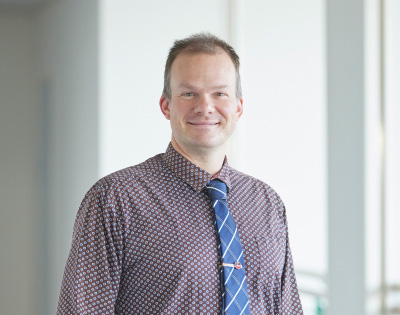
Because they might be afraid of making a mistake, many Japanese students tend to not ask any questions at all. However, it is natural to make mistakes, especially when you don’t understand a subject. Making mistakes should not be embarrassing, but rather a good thing. By asking questions, students we be able to identify what they know and what they don’t, leading to progress in learning. There is a lot to learn from making mistakes. Also, asking questions is a form of communication. By interacting actively with the teachers and other classmates, students can gain the confidence to move forward on their own.
By making connections between what they are studying in class and society as a whole, students will be able to broaden their horizons. For example, students can apply what we study in biology class to what is happening in the news (climate change, pandemics, genetics, etc.). By doing so, they can start seeing all the relationships that surround us and develop a broader perspective about the world and the future. Students don’t know about all the possibilities that await them, and a part of the teacher’s role is to expose them to various ideas through classes. For example, many students may not be aware that studying biology can lead to careers not only in research, but also relating to horticulture or marine biology. I hope to create an educational experience that mixes learning concepts and openness to new ideas that will help students move towards their future goals.
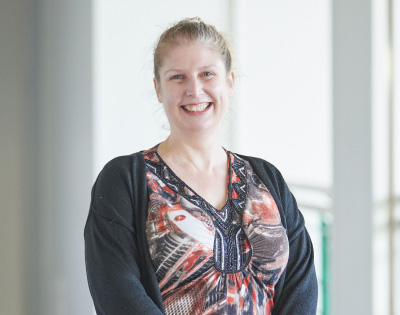
There are many different ways of thinking and values in the world, and there is more than one right answer to most questions.
I believe that in order to become global citizens who can play an active role in the international community, it is important that our students acquire the skills to think objectively, without being influenced by emotions or subjectivity, and learn to accept diversity. In order to do this, I try to stimulate students' desire to actively learn a variety of things by presenting topics that interest them. For example, in the IB programme, students decide on their own themes, research them, and collate their thoughts into a paper, which I believe is difficult for high school students. In order to solve problems, it is necessary not only to learn facts, but also to have "thinking skills". Even if this process is difficult at first, students will gradually become adept and get used to thinking.
I believe that if students can read various types of information by themselves, think about it and act on it, their range of activities will expand.
Since English is not only a subject but also a tool that is used effectively in the world, our goal is for our students to be completely at ease with the English language. However, what is important is how they communicate using that English. They can achieve things by explaining their vision, inspiring others, and gaining cooperation. Successful leaders around the world have these capabilities and use such skills effectively.
One of the things that is essential for communication is the ability to learn independently.
I believe that it is easier to acquire knowledge and that such knowledge can be beneficially shared with others through having a positive attitude towards self-study, combined with curiosity rather than through compulsory learning. To this end, we value classes that stimulate students' curiosity.
I want our students to improve their communication skills to become leaders of the future.
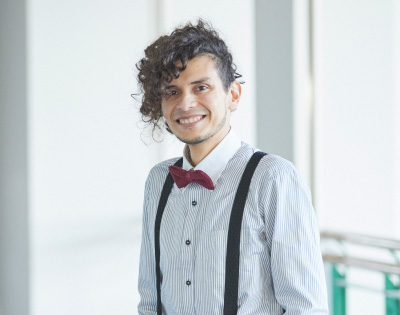
I believe it is important to ask students questions that will arouse their curiosity in order to for them to want to learn. Merely listening to a teacher's explanation and writing it in a notebook is not learning. Being able to think independently is the key to reaching an answer even in unfamiliar situations. Even if it takes more time, I want students to make an effort to get closer to the answer by themselves.
Students will definitely need the ability to think for themselves in the future. I want them to become people who can think for themselves while listening to others’ opinions.
I think an important characteristic of this school is that there are many areas that teachers are responsible for other than just teaching facts. In my classes, I value the experience of discovery rather than just memorisation. Being able to solve a complex problem, prove a conjecture, or discover an unexpected connection between topics through one’s own effort is what math is truly about. I hope students get to appreciate this often ignored side of mathematics.
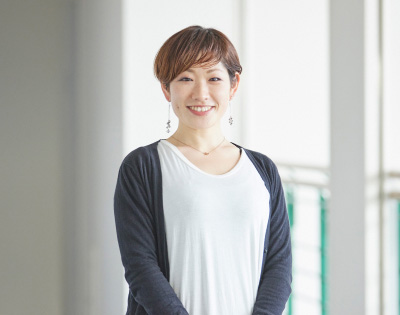
A highlight of the education our school offers is that students can enjoy interacting with teachers from around the world in a truly borderless environment in which a diversity of perspectives and outlooks are accepted. Our teachers are active learners themselves, continuously taking on the challenge of introducing the latest developments in their fields to their classes. As a result, students have countless opportunities for engaged learning.
Through my music classes, I wish to teach not only musical knowledge, but also transmit the joy that music can bring and how fun it can be to contribute to society as an adult. I hope that students can enjoy learning at our truly open and diverse school, always looking forward to their futures.
In addition to teaching music, I serve as a CAS coordinator for the IB programme. CAS, which stands for Creativity, Activity, and Service, is a programme that encourages students to identify, explore and continuously engage in activities covering all 3 letters. As the staff member in charge, I feel it is important to help students discover their topics of interest and develop projects autonomously. To do so, I am careful to encourage students in brainstorming their own ideas and to guide their planning process by asking key questions. Even if the activities and projects they come up with seem challenging at first, I do my best to help students realise their goals. I believe it is our role as teachers to help students succeed in their activities, developing students' self-confidence.
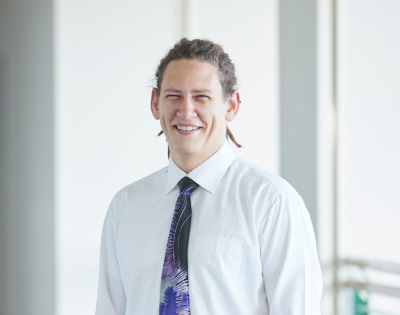
I always try to have classes where the students can explore concepts of history from various perspectives. When studying history, it is very important not to look at things from one side, but from a multitude of viewpoints. For example, examining the causes or consequences of specific historical events such as wars can give us insight into the nature of human history. I feel it is essential that, rather than just memorising historical facts, we explore and discuss significant and controversial topics.
In order to stimulate students' curiosity, deepen their understanding, and develop their critical thinking skills, I use a variety of tools including a wide variety of primary and secondary sources, video, and the Internet. Students also learn to summarise their findings and present them.
Since our school team consists of teachers from such diverse backgrounds, students have opportunities to experience the cultures and norms of many world regions. In other words, we provide an environment where people can naturally gain an understanding of multiculturalism. There are also many opportunities for students to experience Japanese culture as well as to study abroad, broadening their perspectives. In order to take full advantage of such offerings, students will need to analyse information critically, be inquisitive, and develop a healthy skepticism. It is my goal to support students in discovering an internal motivation to cultivate these skills.
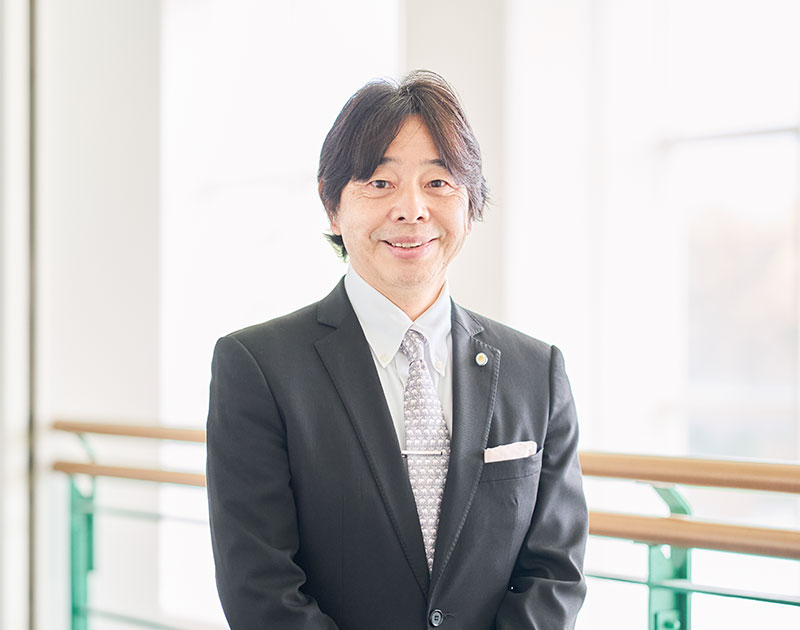
At our school, we aim to deliver an educational experience that not only respects but also cherishes the unique traits of each and every student.
For instance, those who elect to take the IB Course in Grade 10 can choose subjects according to their unique talents and future career pathways. One student might enjoy a Visual Art class while another might engage in an advanced mathematics module. This means that each student benefits from a customized class timetable. In order to allow for this flexibility, our curriculum covers the required subjects and credits to obtain a Japanese high school diploma by the end of Grade 10. In other words, we take full advantage of our accreditation as a secondary school that offers a six-year integrated junior and senior high school programme. Indeed, in some subjects, Grade 9 students learn topics normally intended for Grade 10 and upwards. Additionally, in order to best cultivate students’ unique identities and abilities, we put great emphasis on student-driven inquiry and research as opposed to teacher-centric transfer of knowledge.
We believe that learning shouldn’t be limited to the classroom. It should also encompass lessons gained from interacting with people of diverse backgrounds and cultures. We at Linden Hall High School strategically integrate into academic, arts and extracurricular activities, opportunities for students to gain exposure to a wide variety of perspectives. Through participating in the numerous intercultural exchange and study abroad opportunities, our students realize that there are as many viewpoints in this world as there are stars in the sky. We hold the development of a global perspective in such high esteem that we have positively supported students with outstanding academic records in studying on prestigious international programmes.

Loading